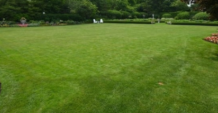Are Poinsettias Poisonous?
At times, an old time rumor is resurrected that poinsettias are poisonous. This is NOT true. Though there may be an allergic reaction to the milky sap, there has never been a recorded case of poisoning. This rumor has been so persistent that members of the Society of American Florists have sought to dispel it by eating poinsettia leaves for the press.
In the 1985 AMA Handbook of Poisonous and Injurious Plants, the poinsettia “has been found to produce either no effect (orally or topically) or occasional cases of vomiting. This plant does not contain the irritant “diterpenes” which is the toxin in other members of the genus Euphorbia to which poinsettia belongs. (Ward Upham)
Poinsettia Care
Modern poinsettia varieties stay attractive for a long time if given proper care. Place your poinsettia in a sunny window or the brightest area of the room, but don’t let it touch cold window panes. The day temperature should be 65 to 75 degrees F. with 60 to 65 degrees at night. Temperatures above 75 degrees will shorten bloom life, and below 60 degrees may cause root rot. Move plants away from drafty windows at night or draw drapes between them to avoid damage from the cold.
Poinsettias are somewhat finicky in regard to soil moisture. Avoid overwatering because poinsettias do not like “wet feet.” On the other hand, if the plant is
allowed to wilt, it will drop some leaves. So how do you maintain proper moisture? Examine the potting soil daily by sticking your finger about one-half inch deep into the soil. If it is dry to this depth, the plant needs water. When it becomes dry to the touch, water the plant with lukewarm water until some water runs out of the drainage hole, then discard the drainage water. (Ward Upham)




